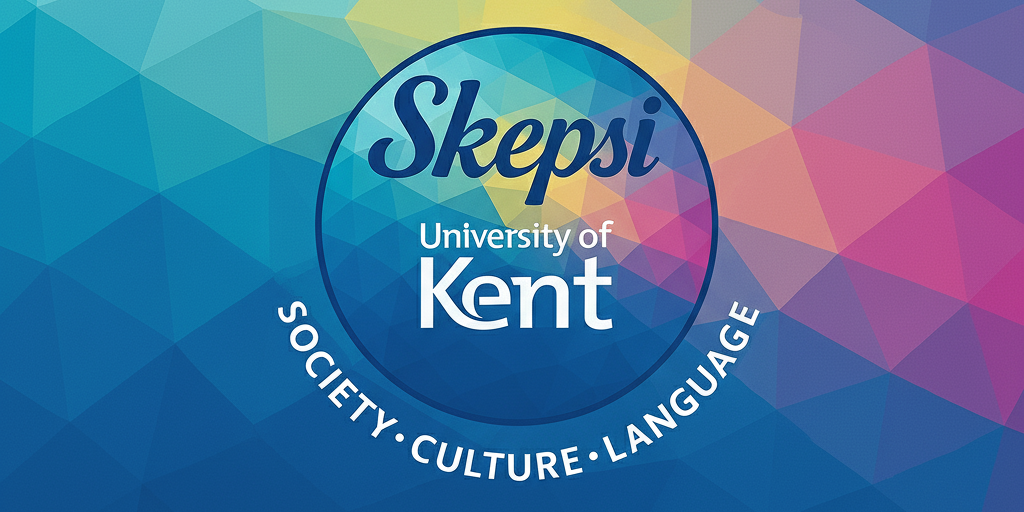Ghosts in the Flesh
24th-25th May, 2013 – University of Kent, Canterbury
Keynote Speaker: Dr. Esther Peeren, University of Amsterdam
While ghosts in the dominant Western tradition have often been associated with other-wordliness or liminality, the aim of this conference is to critically examine discourses and texts which emphasise the corporeality and physicality of ghosts and the ghostly. Allowing ghosts to occupy the centre rather than the periphery challenges – and allows us to reconsider anew – a number of key oppositions such as: life and death, inside and outside, corporeality and incorporeality, self and other, present reality and past memory, and so on.
This commitment to thinking the reality of the incorporeal can be clearly identified, for example, in the Stoic turn in twentieth century French thought. The ancient Stoics developed a form of materialism which admitted four “incorporeals” into their ontology – place, time, the void, and “expressibles” (linguistic sense or meaning). While being the proximate surface-effects of material or corporeal causes, “incorporeals” were seen as filling out the dimensions of the cosmos, itself a single surface expanding and contracting to the rhythm of bodily actions and passions. These incorporeals were considered as having almost zero being or substance, yet they were required to complete the Stoics’ materialism. For Deleuze, the Stoics were thus the first to “reverse” Platonism – the ideal world of Forms no longer seen as transcendent and as now nothing more than an incorporeal lining co-extensive with the sensible world – with the corporeal and the incorporeal neither simply the cause nor the effect of the other.
Perhaps it is psychoanalysis which develops this hypothesis the furthest. Psychoanalysis considers castration – the infant’s awareness of the mother’s lack of a penis – as constituting a deadlock in the infant’s reality. This deadlock is displaced in part thanks to the development of the phantasm – literally a ghost – a psychical structure composed of de-personalised memories, a kind of death through which the infant must pass in order to further its psychical development, and thanks to which the infant can re-connect with the materiality of reality.
Psychoanalysis emphasises the importance of memory in the present, and we should consider memory as a privileged site of the ghostly. More generally, Derrida’s concept of “hauntology” – which refers to the state of the spectre as neither being nor non-being – argues for the existence of the “present” as inseparable from that of the “past”, an individual or society’s past as both revenant and out-of-joint, and as essential to one’s continued survival in the present.
Bearing in mind lines of argumentation such as these, we wish to explore questions of ghostliness and in/corporeality in a number of fields, including but not limited to the following:
- Ghosts in Literature and Cinema (Gothic Literature and its critiques, Magical Realism, the double)
- Virtual Reality and Digital Arts (virtual space, digital performance theory, MMO RPG’s, simulation games)
- Memory and Architecture
- Memory and Archaeology or History
- Theatre (repetition, embodiment)
- Philosophy and Theology (mind-body dualisms and their critiques, “difficult atheism” in continental philosophy)
- Critical theory (psychoanalytic theory, literary theory)
Please send abstracts (350 words) and a short bio-bibliographic note to skepsi@kent.ac.uk by 22nd February 2013.
The conference is organised by Skepsi, a peer reviewed postgraduate journal based in the School of European Culture and Languages at the University of Kent and funded by the University of Kent.

1 comment
Conference Programme : ‘Ghosts in the Flesh’
Friday 24th May:
9.00 -9.30: Welcome coffee and registration
9.30 -11.00 Panel 1 The other ghost: walking, talking dead chair: Nina Rolland
– Lucy Arnold ‘Mother always said that she would haunt’
– Veronica Frigeni ‘Dead man walking’
– Maria Dada ‘Tempo di Materiality’
11.00 -11.20: Coffee break
11.20 -12.30: Panel 2 Performance, Representation and Image chair: Adina Stroia
– Alicia Spencer-Hall : “Spiritual Ghosts in the Digital Flesh? 13th Century Mystical Resurrection and the Modern “Spectre” of Tupac Shakur”
– Jack Webb ‘The Spectre of Haiti in Late Victorian Britain’
12.30 – 13.30: Lunch
13.30 -15.00: Panel 3 Ghosts and Literature. I chair: Mathilde Poizat-Amar
– Jeffrey Knaack ‘Ghosts as we are: Authenticity, Romanticism, and Books as relics in 19th century American Literature’ [in absentia]
– Doreen Bauschke ‘Solid Ghosts and Phantom Persons: The Notion of Somatic Hauntings in Shelley Jackson’s Patchwork Girl’
– Christopher Bond ‘Ghosts in the literature of War’
15.00 -15.30: Coffee break
15.30 – 17.00: Panel 4 Ghosts and Literature. II chair: Krista Bonello
– Beatrijs Brouwer ‘Desire – divine or deadly? The Supernatural in Imperial Chinese Literature’
– Melanie Foehn ‘Out of joint’: The spectre of incommunicability in Hamlet, La Chute, and Beckett’s short plays’.
– Aaron Aquilina ‘Writing Afterlife – The Exhibitionism of the Dead’
17.00 – 18.00 Wine Reception
19.30: Dinner in town, everyone is welcome to join
Saturday 25th May:
10.00 -11.30: Panel 5 Physical Spaces chair: Titu Chakraborty
– John Sabol ‘The Ghosts of Place: The Acoustemology of Situated Past Presence’
– James Geary ‘The Holy Ghost made Manifest: How Bernini pinned down the Holy Ghost in Rome’
– Michał Sowiński and Katarzyna Trzeciak ‘Gdynia – city with(out) ghosts’
11.30 – 11.45: Coffee break
11.45 – 12.45: Keynote speaker: Esther Peeren, University of Amsterdam, ‘Fleshing out the Spectral metaphor’ chair: Guilaume Collett
12.45 – 14.00: Lunch